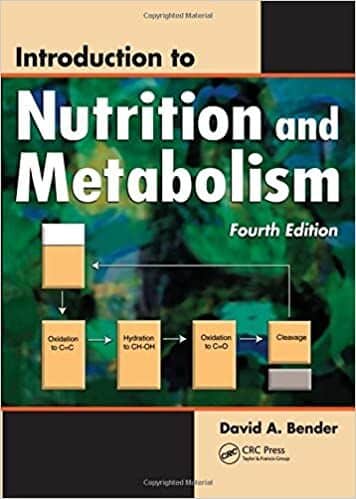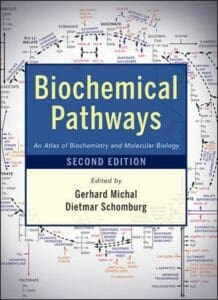Introduction to Nutrition and Metabolism 4th Edition

By David A. Bender
Introduction to Nutrition and Metabolism 4th Edition PDF is Extensively revised and updated to reflect our current understanding of nutritional and dietary requirements, Introduction to Nutrition and Metabolism, Fourth Edition includes new information examining the role of nutrition in common chronic diseases. Also new to this edition are revised end-of-chapter exercises, key point summaries, and a CD-ROM with PowerPoint presentations for each chapter, self-assessment tests, clinical problems, a virtual laboratory, and a program for nutrient analysis and meal evaluation.
Retaining the wealth of detailed information delivered in the accessible manner of its predecessors, Introduction to Nutrition and Metabolism 4th Edition PDF continues to provide a clear introduction to the principles of nutrition and metabolism, the interactions between diet and health, and the scientific basis for dietary goals and recommendations. The author uses concise, authoritative language to emphasize and describe the underlying biochemistry that is essential to an understanding of nutrient function and the ability to evaluate and interpret future advances in nutrition science. With clear and simple diagrams, the text explores the physiological need for food and describes the metabolic pathways, their integration and control, and the biochemical basis of their nutritional and physiological importance. It covers digestion and absorption and the metabolic roles of ATP, enzymes, and coenzymes. Describing the functional utilization of protein, fats, and carbohydrates, the book discusses macronutrients in terms of energy yield, energy balance, and reserves. It also covers the endocrinology of metabolic control and the biochemistry of vitamins and minerals.
Examining nutritional biochemistry and the role of diet in heath and disease, Introduction to Nutrition and Metabolism, Fourth Edition provides the scientific basis from which to make prudent and healthy dietary recommendations.
This Book is Available For Premium Members Only













![Ettinger’s Textbook of Veterinary Internal Medicine 9th Edition [PDF+Videos] Ettinger’s Textbook of Veterinary Internal Medicine 9th Edition [True PDF+Videos]](https://www.vet-ebooks.com/wp-content/uploads/2024/10/ettingers-textbook-of-veterinary-internal-medicine-9th-edition-100x70.jpg)

![Textbook of Veterinary Diagnostic Radiology 8th Edition [PDF+Videos+Quizzes] Thrall’s Textbook of Veterinary Diagnostic Radiology, 8th edition PDF](https://www.vet-ebooks.com/wp-content/uploads/2019/09/textbook-of-veterinary-diagnostic-radiology-8th-edition-100x70.jpg)






